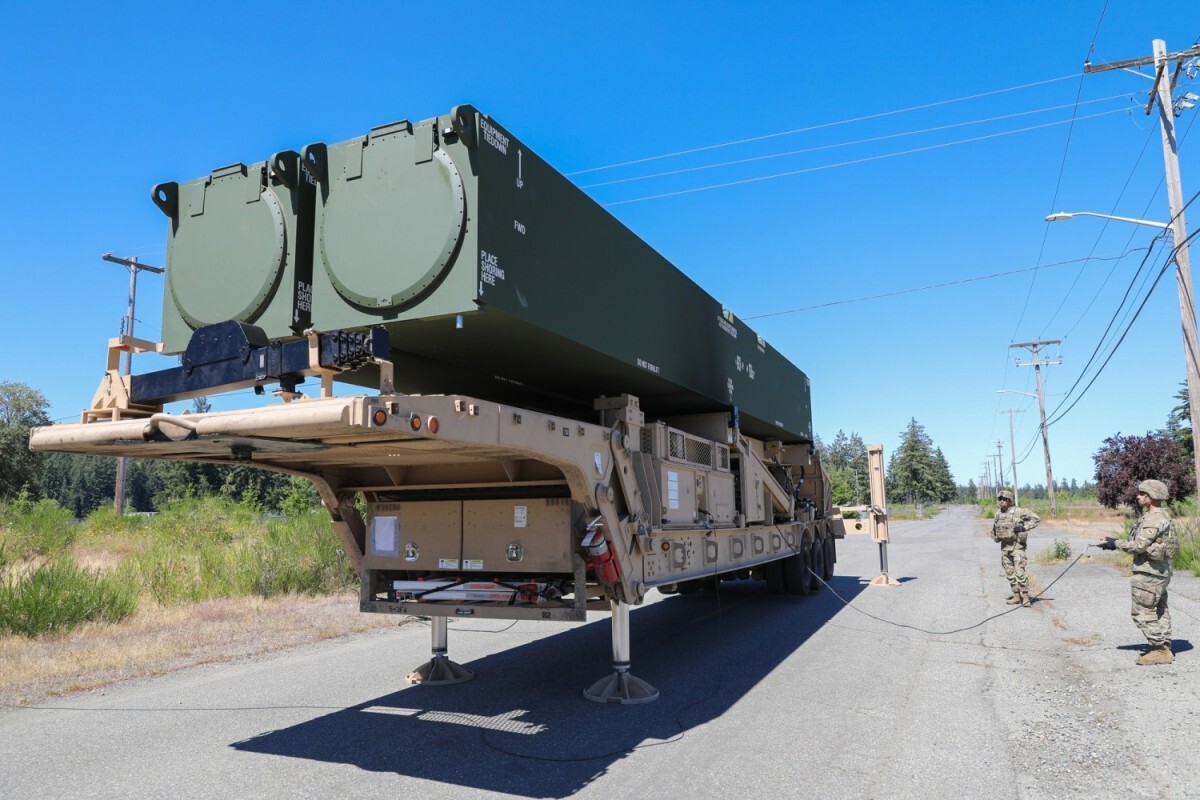The US Army is pushing for full deployment of its first hypersonic missiles, with its Long-Range Hypersonic Weapon Battery taking part in Exercise Resolute Hunter 24-2 at Naval Air Station Fallon, Nevada along with forces from the Five Eyes alliance.
With their ability to fly at well over five times the speed of sound, hypersonic missiles are in the top five on the wish lists of every major or even medium military power. If such a weapon system could fly at such speed and be maneuverable, it would be able to blast past conventional air defense systems as if they weren’t there and hit targets so hard as to destroy themselves by sheer kinetic energy without the need for explosive warheads.
The US has fallen behind countries like Russia, which has actually used hypersonic missiles in battle in Ukraine, but part of the reason is that there’s something of the perfectionist in the American engineering mind. Where others hurry to deploy hypersonics as soon as possible, the US military prefers to concentrate on making such missiles practical and incorporating them with existing forces.
US Army
It’s similar to the Space Race of the 1960s where the USSR was content with stacking up a pile of firsts, like the first space walk or the first woman in space, while the Americans were more interested in perfecting the technology and techniques of space travel, like how to link up to vessels in orbit or how to maneuver in zero gravity while outside a spacecraft.
The recent exercise from June 25 to 27, 2024 was part of the US Department of Defense’s only dedicated battle management, command and control, intelligence, surveillance and reconnaissance exercise. It was designed to not only help to integrate the Long-Range Hypersonic Weapon (LRHW), AKA Dark Eagle, with US forces, but also with the intelligence and recon services of Britain, Canada, Australia, and New Zealand, who make up the Five Eyes intelligence alliance.
The purpose of the exercise was to show how Dark Eagle can integrate with joint command forces in real time. During the maneuvers, Dark Eagle demonstrated that it could integrate with other combat units as well as command and control systems for extended periods of time.

US Army
Dark Eagle is a medium-range surface-to-surface hypersonic missile that is being developed for the US Army by Lockheed Martin and Northrop Grumman, with variants for deployment on US Navy ships and submarines. Its primary mission is to suppress long-range enemy fire and take out high-value targets at ranges of up to 1,875 miles (3,000 km).
The system consists of a mobile launcher with two canisters, each one containing a rocket booster and a Common-Hypersonic Glide Body (C-HGB) in a nose cone. The rocket propels the glide body to high altitude from which it glides under control to its target, reaching a maximum speed of Mach 17. That’s in the neighborhood of the velocity of a returning spacecraft.
In addition to the recent exercise, Dark Eagle has also been tested in various forms since 2017, including an end-to-end test this year at the Pacific Missile Range Facility, Kauai, Hawaii.

US Army
When fully operational, the Army wants to deploy Dark Eagle in an eight-missile battery containing four M983 trucks and trailers with two missiles each in launch canisters, alongside a command vehicle.
“Exercise Resolute Hunter 24-2 demonstrated the critical role of land power and the Army’s indispensable contribution to joint operations,” said Captain Jennifer Lee, commander of Bravo Battery. “I’m proud of our team’s commitment to excellence and their ability to adapt and innovate in a complex and dynamic training scenario.”
Source: US Army





![[Watch] Alex Jones Vows To Challenge ‘The Onion’ After It Buys ‘Infowars’ With The Help Of Sandy Hook Families [Watch] Alex Jones Vows To Challenge ‘The Onion’ After It Buys ‘Infowars’ With The Help Of Sandy Hook Families](https://d.ibtimes.co.uk/en/full/1731739/alex-jones.png)

